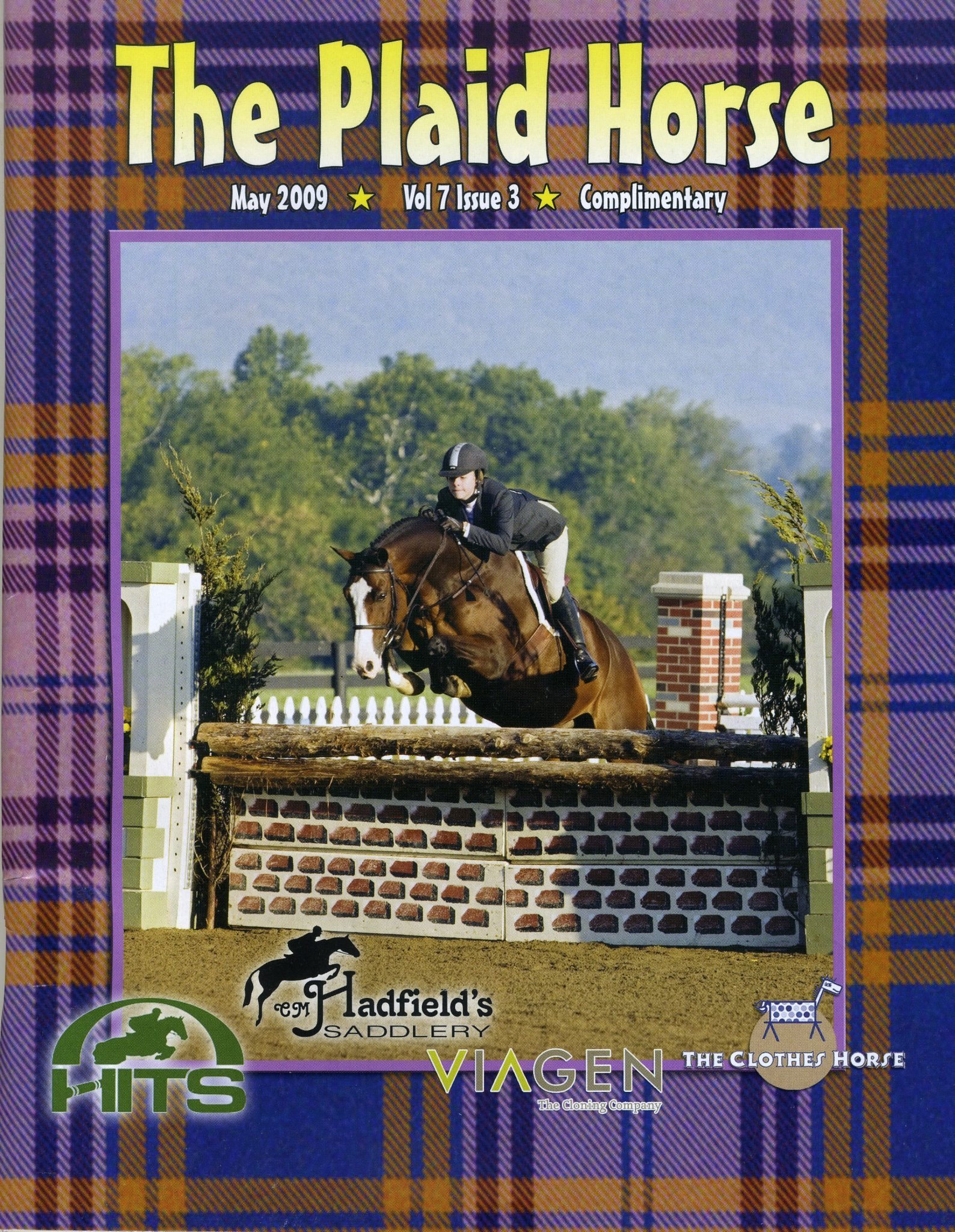By Tonya Johnston, MA
Appeared in The Plaid Horse, May 2009
Chipped so hard to the first jump it made the earth move? Rode around the warm-up ring for 20 minutes with a mane comb stuck in your horse’s tail? Forgot the halt after the trot jump in the work-off after going in on top? We’ve all been there – well, maybe not to exactly the same places – but certainly every rider has their own list of forgettable moments; if only we could forget them! Why do they seem to stick like glue to our memory banks? Why do they insidiously creep into our thoughts at the most inopportune times?

Letting go of these types of ‘oops’ moments after they have occurred is important. Like the hard drive on a computer, our brains only have so much space in which to be productive. When these unproductive memories start to clog the memory bank and negatively affect our core beliefs (e.g. “I always mess up to the first fence.”) we begin to severely limit our performance potential. So, how can you let go of these moments once and for all? Read on.
Keep a Long Range Perspective
In the scope of your riding career you will have many, many different types of experiences. Some will be fantastic (e.g. jumping your first 3′ oxer or clearing the big open water) and some will not be as stellar (e.g. going off course in your first handy hunter class). The main point to remember is that the experiences themselves will not ever define who you are as a rider. By stepping back to notice your development and progress over time you can recognize skills and qualities you posses that will endure no matter what happens on any given day, in one particular ride.
When a mountain climber heads to the summit of a mountain, she knows she can’t go in one perfectly straight line to the top. There will be zig-zags and some ups and downs as she climbs. Even in the moments when she has to go down to get around something, or the trail needs to wind away from the summit – she keeps her mind focused on the overall goal (getting to the top) and the skills (maintaining a rhythmic pace, even breathing, etc.) required to get the job done.
Periodically – and particularly when you have something you need to let go of – review your riding history and keep a lookout for the ups and downs that you have experienced. When you take the time to study it, you will see how everything you have undergone has kept you on a steady climb toward being the best rider you can be.
Use Humor
“It’s a shame I didn’t have my GPS today – good thing my horse can find the jumps!” The ability to use humor with respect to your riding bloopers is the result of a deep seated confidence in your ability. When you can laugh at a situation, you have the awareness that it isn’t always going to be that way. You have the ability to look into the future and realize that you aren’t defined by that one challenging moment. “Once you can laugh at your own weaknesses, you can move forward. Comedy breaks down walls. It opens up people. If you’re good, you can fill up those openings with something positive.” This Goldie Hawn quote sums up the positive potential in ‘finding the funny’.
Seeing the humor can deflate a negative situation because you have chosen to see it in a different light. This is not to say that mistakes and brain bloopers cannot produce disappointing results. Of course sadness can be a healthy response to a less-than-optimal outcome, but there is a limit to how long and to what depth we can healthfully process the unhappiness.
Accept Mistakes as Learning and Growth Opportunities
“I’ve missed more than 9000 shots in my career. I’ve lost almost 300 games. 26 times, I’ve been trusted to take the game winning shot and missed. I’ve failed over and over and over again in my life. And that is why I succeed.” Michael Jordan’s quote is a powerful example of the courage and healthy perspective employed by one of the greatest athletes of all time. Mistakes viewed with the right perspective can breed strength of character and a deepened dedication to finding success.
When you came out of the ring after the weighty mistake, you and your trainer probably examined what happened and figured out a way to prevent it from occurring in the future. However, emotions and adrenalin may have clouded your view at the time. To fully let go of a mistake, it is helpful to let a day or two pass and then look back on it with a more objective viewpoint. Recall both what happened physically and remember your focus and psychological attitude. Look at it from every angle, as if you were solving a puzzle. Once you come to an understanding of the physical and mental aspects of it, you will feel more confident you have made the experience count and learned what you could. To grow stronger as a result of this process, be sure to promptly replace any flashback of the mistake with an image of you and your horse responding correctly to the situation and succeeding as a result.


